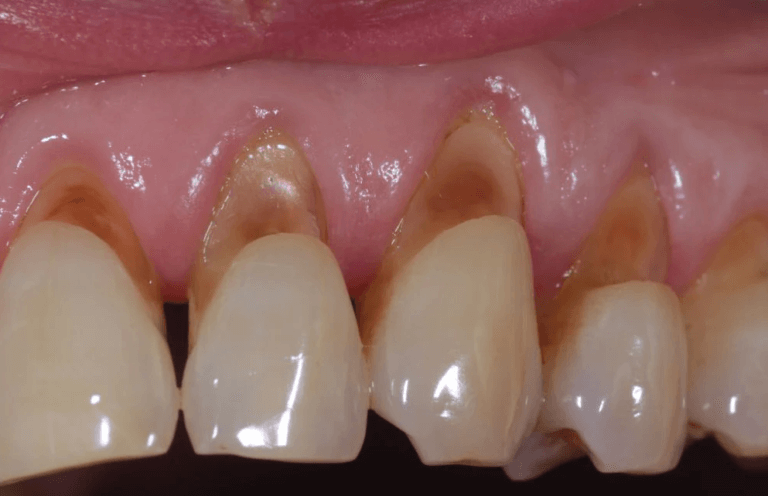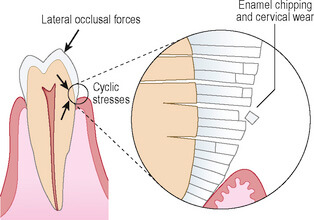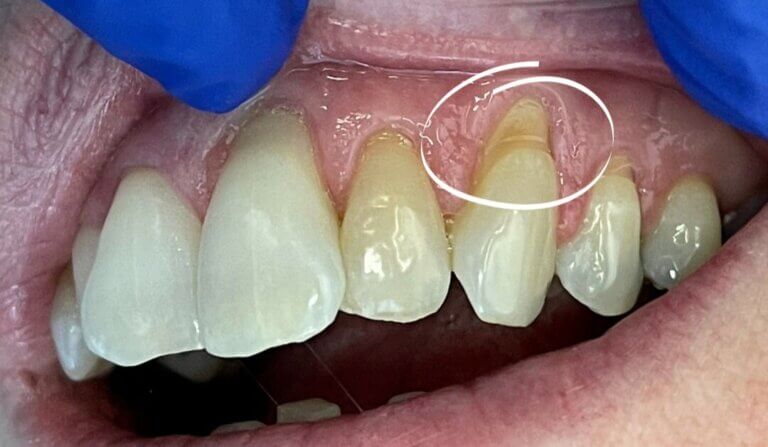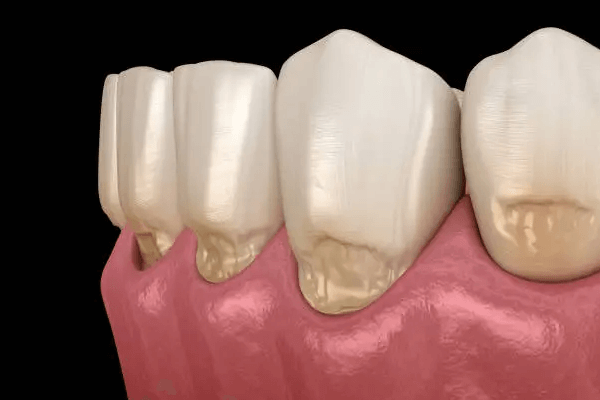Abfraction

What Is Abfraction?
Abfraction is a dental condition that occurs when the enamel at the gum line wears away due to forces exerted during biting, chewing, or grinding. These forces, especially when uneven, cause the teeth to flex and create small fractures or lesions at the base of the tooth. Over time, these lesions can lead to notches or grooves near the gum line, which may expose the softer dentin beneath the enamel. Unlike cavities caused by decay, abfraction is a result of mechanical stress and is often associated with issues like bruxism (teeth grinding) or misaligned bites.
Before you contact a Toronto dentist to examine Abfraction, there are some things you should know as a patient:
- Why Do I Have Abfraction?
- Signs And Symptoms Of Abfraction
- Treatment Options For Abfraction
- How To Prevent Abfraction
If you have questions about Abfraction or other dental problems, please contact us for more information.
Why Do I Have Abfraction?
Understanding the reasons behind abfraction lesion can help you take steps to prevent further damage. Here are some common causes:
- Teeth Grinding (Bruxism): Abfraction can result from teeth grinding, a habit that places excessive stress on the teeth and causes enamel to wear away, leading to notches at the gum line.
- Misaligned Bite: An improper bite can create uneven pressure on teeth, which may contribute to the development of an abfraction lesion by causing the teeth to flex and stress their enamel.
- Excessive Chewing Forces: Chewing on hard objects or applying excessive force while eating can stress the teeth, causing small fractures at the gum line that lead to abfraction.
- Poor Dental Hygiene: Inadequate oral care may lead to plaque buildup, which can contribute to enamel erosion and make teeth more susceptible to abfraction.
- Acidic Foods and Beverages: Regular consumption of acidic foods and drinks can weaken enamel, making it more prone to damage from mechanical forces that cause abfraction lesions.
Understanding the underlying causes of abfraction is crucial for both prevention and treatment. By addressing these factors, you can protect your teeth from further damage and maintain a healthier smile. For more information about Abfraction lesions, please contact us.

Signs and Symptoms of Abfraction
Recognizing the signs and symptoms of abfraction lesions is key to addressing the issue early. Here are some common indicators:
- Notches or Grooves at the Gum Line: One of the most noticeable signs of abfraction is the presence of small notches or grooves near the gum line, where the enamel has worn away.
- Tooth Sensitivity: If you experience increased sensitivity to hot, cold, or sweet foods and drinks, it could be a sign that the underlying dentin is exposed due to abfraction.
- Visible Enamel Wear: You may notice that the enamel around the base of your teeth looks worn or thinner than the surrounding areas, which can be an indication of abfraction.
- Gum Recession: In some cases, abfraction lesions can lead to gum recession, where the gum tissue pulls away from the teeth, exposing more of the tooth structure.
- Discomfort While Chewing: If you feel discomfort or pain while chewing, it might be due to the stress and damage caused by abfraction.
Identifying these symptoms early can help you seek timely treatment and prevent further damage. If you notice any of these signs, it’s important to consult with your dentist to address the condition effectively and preserve your dental health. For more information about Abfraction lesions, please contact us.

Treatment Options for Abfraction
Addressing abfraction lesions effectively often requires a combination of professional dental care and lifestyle adjustments. Here are some common treatment options:
- Composite Resin Dental Fillings: A tooth-colored resin can be applied to restore the tooth structure and protect it from further damage.
- Dental Crowns: In more severe cases, a crown may be necessary to cover and protect the affected tooth.
- Custom Mouthguards: If bruxism is contributing to abfraction, wearing a mouthguard at night can reduce grinding and protect your teeth.
- Bite Adjustment: Correcting bite misalignment can help reduce uneven pressure on your teeth, preventing further abfraction.
Consult with your dentist to create a personalized treatment plan that addresses your specific needs. For more information about Abfraction lesions, please contact us.

How to Prevent Abfraction
Preventing abfraction lesions involves both proactive dental care and lifestyle adjustments. Here are effective strategies to help protect your teeth:
- Wear a Mouthguard: A custom-made mouthguard can protect your teeth from grinding and reduce stress on enamel.
- Fix Bite Issues: Consult with your dentist to correct any bite misalignments, reducing the uneven pressure on your teeth.
- Maintain Good Oral Hygiene: Brush with fluoride toothpaste and floss regularly to prevent plaque buildup and enamel erosion.
- Limit Acidic Foods and Beverages: Minimize acidic food and drink consumption, and rinse your mouth with water afterward if consumed.
- Chew Carefully: Avoid chewing on hard objects and be mindful of using excessive force while eating.
- Regular Dental Check-Ups: Regular cleanings and exams will help detect early signs of abfraction, ensuring timely treatment.
By incorporating these preventive measures into your daily routine, you can help protect your teeth from abfraction and maintain overall dental health. If you have concerns or symptoms of abfraction lesions, consult with your dentist to address the issue promptly. For more information about Abfraction lesions, please contact us.

